The NATO Summit in Vilnius, Lithuania, has ended with the North Atlantic Alliance unified on its continued support of Ukraine but less so on the touchy subject of NATO membership. While Ukraine did not receive either an invitation to join NATO or a timeline for that to happen, it did get a straightforward and streamlined process, and it received several significant bilateral agreements guaranteeing Ukraine’s territorial integrity.
NATO’s Commitment to Ukraine
NATO stopped short of offering Ukraine membership, but it didn’t come away empty-handed. In my view, the creation of the Ukraine-NATO Council makes Ukraine part of NATO in everything other than Article 5 military assistance. It adds a formal structure to a process I predicted over a year ago: Ukraine Has Joined NATO Whether Russia Likes It or Not, and More Are Yet to Follow.
9. We welcome the strong support in the UN General Assembly for efforts to promote a comprehensive, just, and lasting peace in Ukraine. We welcome and support President Zelenskyy’s commitment in setting out the principles for such a peace through his Peace Formula. We are committed to achieving a just and lasting peace that upholds the principles of the UN Charter, in particular sovereignty, territorial integrity and independence. We underline that this cannot be realised without Russia’s complete and unconditional withdrawal. While we have called on Russia to engage constructively in credible negotiations with Ukraine, Russia has not shown any genuine openness to a just and lasting peace.
10. We reaffirm our unwavering solidarity with the government and people of Ukraine in the heroic defence of their nation, their land, and our shared values. We fully support Ukraine’s inherent right to self-defence as enshrined in Article 51 of the UN Charter. We remain steadfast in our commitment to further step up political and practical support to Ukraine as it continues to defend its independence, sovereignty, and territorial integrity within its internationally recognised borders, and will continue our support for as long as it takes. We welcome efforts of all Allies and partners engaged in providing support to Ukraine.
11. We fully support Ukraine’s right to choose its own security arrangements. Ukraine’s future is in NATO. We reaffirm the commitment we made at the 2008 Summit in Bucharest that Ukraine will become a member of NATO, and today we recognise that Ukraine’s path to full Euro-Atlantic integration has moved beyond the need for the Membership Action Plan. Ukraine has become increasingly interoperable and politically integrated with the Alliance, and has made substantial progress on its reform path. In line with the 1997 Charter on a Distinctive Partnership between NATO and Ukraine and the 2009 Complement, Allies will continue to support and review Ukraine’s progress on interoperability as well as additional democratic and security sector reforms that are required. NATO Foreign Ministers will regularly assess progress through the adapted Annual National Programme. The Alliance will support Ukraine in making these reforms on its path towards future membership. We will be in a position to extend an invitation to Ukraine to join the Alliance when Allies agree and conditions are met.
12. The security of Ukraine is of great importance to Allies and the Alliance. To support Ukraine’s further integration with NATO, today we have agreed a substantial package of expanded political and practical support. We have decided to establish the NATO-Ukraine Council, a new joint body where Allies and Ukraine sit as equal members to advance political dialogue, engagement, cooperation, and Ukraine’s Euro-Atlantic aspirations for membership in NATO. It will provide for joint consultations, decision-making, and activities, and will also serve as a crisis consultation mechanism between NATO and Ukraine.
13. The continued delivery of urgently needed non-lethal assistance to Ukraine by NATO through the Comprehensive Assistance Package (CAP) remains a priority. Since the Madrid Summit, Allies and partners have committed over 500 million Euros to the CAP. To support Ukraine’s deterrence and defence in the short, medium, and long term, we have agreed today to further develop the CAP into a multi-year programme for Ukraine. The assistance provided will help rebuild the Ukrainian security and defence sector and transition Ukraine towards full interoperability with NATO. Allies will continue to fund the CAP in a sustained and predictable way. We highly welcome and encourage partner contributions.
A clear majority of NATO favors Ukraine’s admission. The two major impediments are Joe Biden and Olaf Scholz. Poland is one of the biggest proponents of Ukrainian NATO membership.
Polish President Andrzej Duda says that not enough has been offered in terms of an invitation to NATO membership for Ukraine at the NATO summit in Vilnius.
🇵🇱🇺🇦 pic.twitter.com/SYU1I3Mq3V
— Visegrád 24 (@visegrad24) July 12, 2023
The outcome of the NATO Summit had caused the Poles and Baltic States to wonder if Biden’s opposition is a first step in abandoning Ukraine.
I hear behind the scenes at the summit that the screwed-up text of the conclusions on Ukraine's future in NATO is the result of the Biden administration's desire to keep Ukraine's future in NATO as a bargaining chip in future negotiations with Russia about ending the war. If… https://t.co/qgxU9kra22
— Sławomir Dębski (@SlawomirDebski) July 12, 2023
G-7 Commitment
The G-7 that is, U.S., Britain, France, Germany, Canada, Italy, and Japan, met simultaneously as NATO and issued its own communique supporting Ukraine.
We will each work with Ukraine on specific, bilateral, long-term security commitments and arrangements towards:
a) Ensuring a sustainable force capable of defending Ukraine now and deterring Russian aggression in the future, through the continued provision of:
- security assistance and modern military equipment, across land, air, and sea domains – prioritizing air defense, artillery and long-range fires, armored vehicles, and other key capabilities, such as combat air, and by promoting increased interoperability with Euro-Atlantic partners;
- support to further develop Ukraine’s defense industrial base;
- training and training exercises for Ukrainian forces;
- intelligence sharing and cooperation;
- support for cyber defense, security, and resilience initiatives, including to address hybrid threats.
b) Strengthening Ukraine’s economic stability and resilience, including through reconstruction and recovery efforts, to create the conditions conducive to promoting Ukraine’s economic prosperity, including its energy security.
c) Providing technical and financial support for Ukraine’s immediate needs stemming from Russia’s war as well as to enable Ukraine to continue implementing the effective reform agenda that will support the good governance necessary to advance towards its Euro-Atlantic aspirations.
In the event of future Russian armed attack, we intend to immediately consult with Ukraine to determine appropriate next steps. We intend, in accordance with our respective legal and constitutional requirements, to provide Ukraine with swift and sustained security assistance, modern military equipment across land, sea and air domains, and economic assistance, to impose economic and other costs on Russia, and to consult with Ukraine on its needs as it exercises its right of self-defense enshrined in Article 51 of the UN Charter. To this end, we will work with Ukraine on an enhanced package of security commitments and arrangements in case of future aggression to enable Ukraine to defend its territory and sovereignty.
In addition to the elements articulated above, we remain committed to supporting Ukraine by holding Russia accountable. This includes working to ensure that the costs to Russia of its aggression continue to rise, including through sanctions and export controls, as well as supporting efforts to hold to account those responsible for war crimes and other international crimes committed in and against Ukraine, including those involving attacks on critical civilian infrastructure. There must be no impunity for war crimes and other atrocities. In this context, we reiterate our commitment to holding those responsible to account, consistent with international law, including by supporting the efforts of international mechanisms, such as the International Criminal Court (ICC).
The security guarantees given Ukraine by the G-7 nearly amount to a mutual defense pact.
Zelensky Under Control
Tuesday, the big story, and an overblown one was Zelensky’s reaction on social media to the lack of a NATO invitation, see Zelensky Rages Out and Trashes NATO, Accuses the Alliance of Aiding Russia and War of Words Between the White House and Zelensky Heats Up. I don’t think anyone looked particularly good. In particular, Jake Sullivan came off as treating a nation fighting for survival as a client state that should be kissing Biden’s pimply butt for the weaponry needed to defend itself.
U.S. blasts 'ungrateful' Zelensky after Kyiv slammed 'absurd' delay to NATO membership https://t.co/95FDuob3HH
— Logan Ratick (@Logan_Ratick) July 12, 2023
Conflating Zelensky’s anger at the serial duplicity of the Biden foreign policy apparatus with being ungrateful to “the American people” may have reached a new low in dishonesty (Did Blinken Put Poland Outside NATO Protection if It Transfers New Fighter Aircraft to Ukraine?, Transfer of NATO Aircraft to Ukraine Falls Through as Zelensky Resumes His Campaign for a No-Fly Zone, Revealed: The Real Reason That Deal to Send Fighter Jets to Ukraine Fell Through, and Biden Junta Duplicity Revealed After Poland Declares MiGs for Ukraine Are Ready to Go).
Zelensky clearly believed that Ukraine would get a commitment from NATO for membership. NATO membership was the big subject when he visited Turkey’s Erdogan in Constantinople, sorry, Istanbul, over the weekend (Turkey’s Erdogan Delivers Two Stinging Defeats to Vladimir Putin in Just One Day). Previous to that, he’d said that he would not attend the NATO Summit unless something major was going to happen, and he reiterated that position in his ABC News interview Sunday (Ukraine’s President Zelensky Gives His Views on the Offensive, US Support, and How the War Finally Ends).
By Wednesday, Zelensky was more philosophical about the outcome.
⚡️“The results of the summit are good, but if there was an invitation [to #NATO], they would be perfect,” Volodymyr #Zelensky said during the joint press conference with Jens #Stoltenberg.
“Ukraine understands that it cannot be a NATO member during a war. But clear signals that… pic.twitter.com/0lWyvEaxig
— KyivPost (@KyivPost) July 12, 2023
While Zelensky did not get all that he wanted, I think he got all he had any reason to expect.
Russian Reaction
Russia wasn’t happy. It accused NATO of trying to encircle Russia and of ignoring Moscow’s security concerns. They also warned that NATO’s expansion would have serious consequences for European security.
Russian Foreign Minister Sergei Lavrov criticized NATO’s decision to invite Finland and Sweden to join the alliance. Putin’s spokesman Dmitry “Porn ‘Stache” Peskov, had a sad over NATO’s plans to deploy more troops and weapons to Eastern Europe.
The lack of introspection by the Russian ruling clique shows it is a monumentally unserious country with no idea whatsoever about where the war in Ukraine takes Russia if it is fought out to the end.
Bottom Line
There is a clear division of NATO into three parts. The overwhelming majority of the member states support Ukraine’s defense of its territorial integrity and membership in NATO. The StripeyPants™ set in the State Department continues to imagine itself playing Great Power politics and making things worse. The Germans, whose leftist leadership is owned by Russia, talk a good game but are clearly trying to rescue Russia from its blunder.
The NATO communique makes it very clear that from the Alliance standpoint, there can be no diplomatic solution unless Russian troops withdraw from Ukraine. Creating a Ukraine-NATO Council makes Ukraine a member of NATO in all but name.
A standing applause for Zelensky as the first ever meeting of the Ukraine-NATO Council has begins.
🇺🇦
Via @RubrykaEng
pic.twitter.com/uOUQCtw1Ur— Visegrád 24 (@visegrad24) July 12, 2023
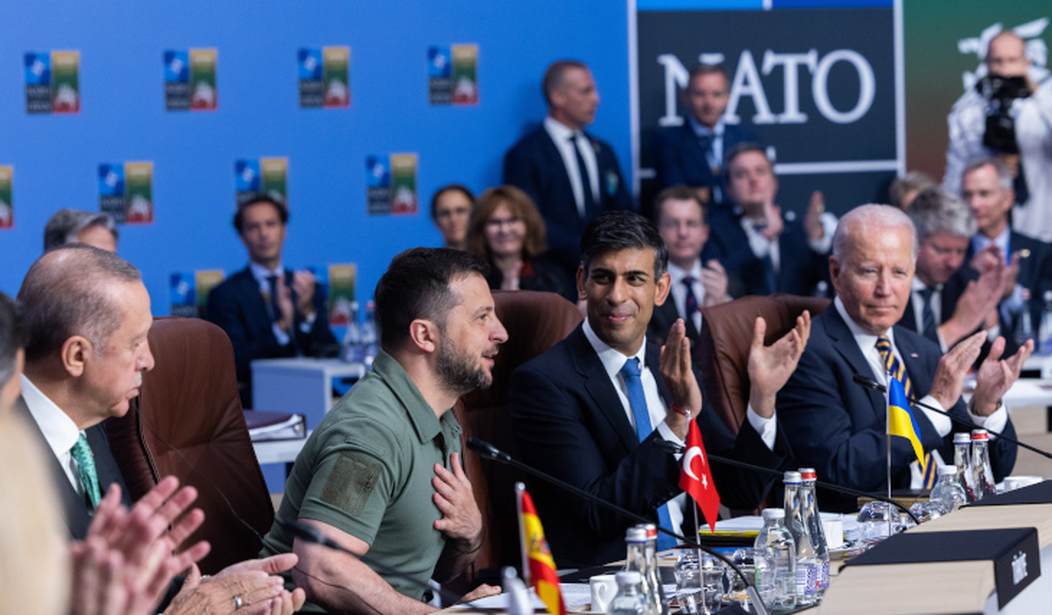
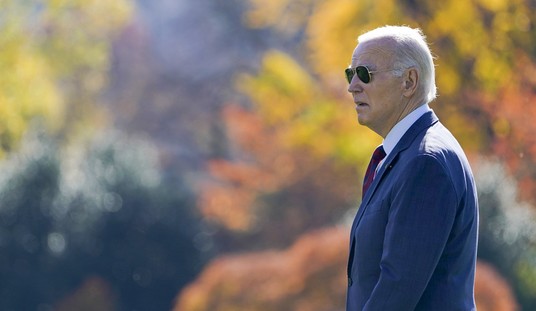



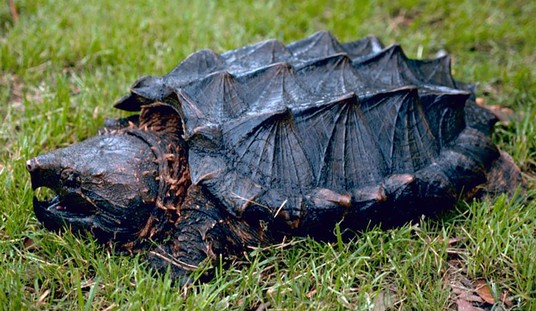
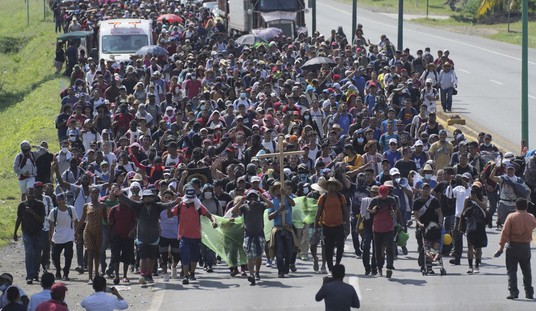




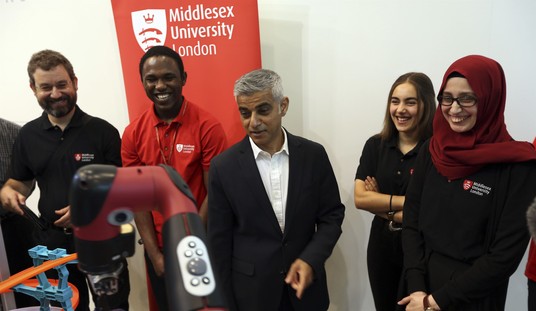

Join the conversation as a VIP Member